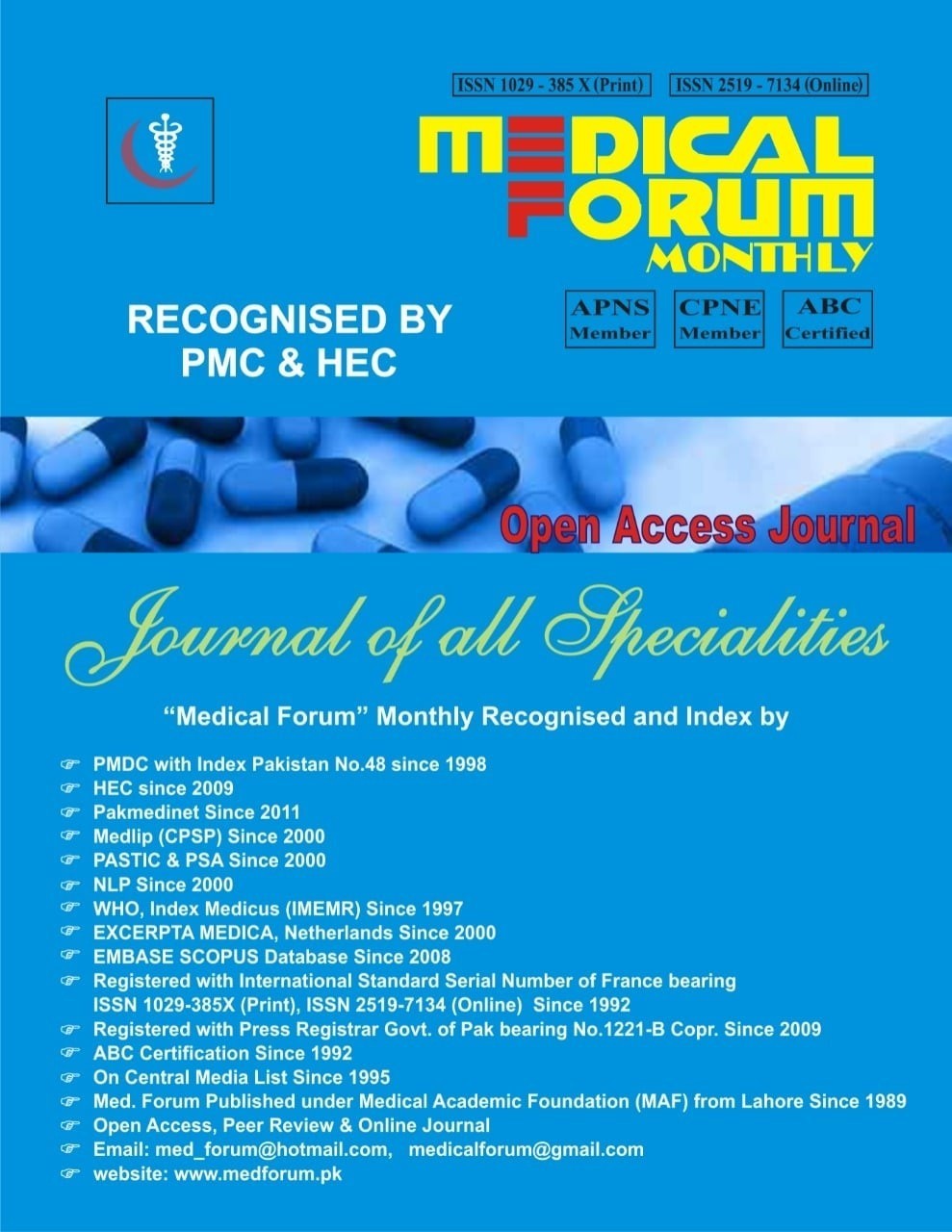
9.Optimal Hematocrit during Cardiopulmonary Bypass to Minimize Post-Operative Renal Dysfunction in Cardiac Surgery
Abdul Wasay, Muhammad Asad Bilal Awan, Asmatullah Achakzai, Muhammad Mansoor, Muhammad Ishaq Khan and Muhammad Arif
ABSTRACT
Objective: The aim of our study is to identify the ideal hematocrit which must be maintained on CPB to minimize hemodilution induced renal dysfunction after cardiac surgery in our population.
Study Design: Prospective observational study.
Place and Duration of Study: This study was conducted at the Department of Cardiac surgery National Institute of Cardiovascular Diseases (NICVD) Karachi. Duration was 6 months from December 2020 to May 2021.
Materials and Methods: All patients with age between 18 and 80 years undergoing cardiac surgery( CABG, valvular, adult congenital) using CPB were included in study. Patients with preoperative renal failure ,Unstable hemodynamic state and Complex cardiac surgeries were excluded.
Patient’s demographic data was obtained such as age (years), gender, height (cm), weight (kg), and BMI (kg/m2). Hematocrit was recorded and all the patients were observed during their post-operative hospital stay and incidence of post-operative renal dysfunction was recorded. Data was entered and analysis using SPSS version-21.The receiver operating characteristic (ROC) curve analysis was performed to determine the optimal cutoff value of hematocrit. Two sided p-value of ≤ 0.05 was taken as criteria of statistical significance.
Results: Total number of patients were 259 which were included in study. In our study mean age was 50.79 ± 13.31 years and mean body mass index was 25.3 ± 5.1 kg/m2. Preoperative mean creatinine was 0.9 ± 0.2 ng/dL.The mean cardiopulmonary bypass time was 120.3 ± 32.6 minutes. Mean hematocrit maintained on pump was 26 ± 3.7. Post operatively only 3(1.2%) patients developed renal dysfunction and mean post-operative creatinine was 1 ± 0.3 ng/dL. Overall mortality was 1.2% (3). The area under the curve on ROC analysis was found to be 0.839 [0.691 to 0.986] and the optimal hematocrit level of 27.85 had sensitivity of 100% and specificity of 73% for the prediction of post-operative renal dysfunction.
Conclusion: Hematocrit during CPB affects the outcome after cardiac surgery. It has a direct effect on post-operative renal function. Further larger studies need to be carried out to find out the optimal hematocrit levels needed for best results in cardiac surgery patients.
Key Words: Hematocrit, CardioPumonary Bypass CPB, Renal Dysfunction
Citation of article: Wasay A, Awan MAB, Achakzai A, Mansoor M, Khan MI, Arif M. Optimal Hematocrit during Cardiopulmonary Bypass to Minimize Post-Operative Renal Dysfunction in Cardiac Surgery. Med Forum 2021;32(10):39-44.
